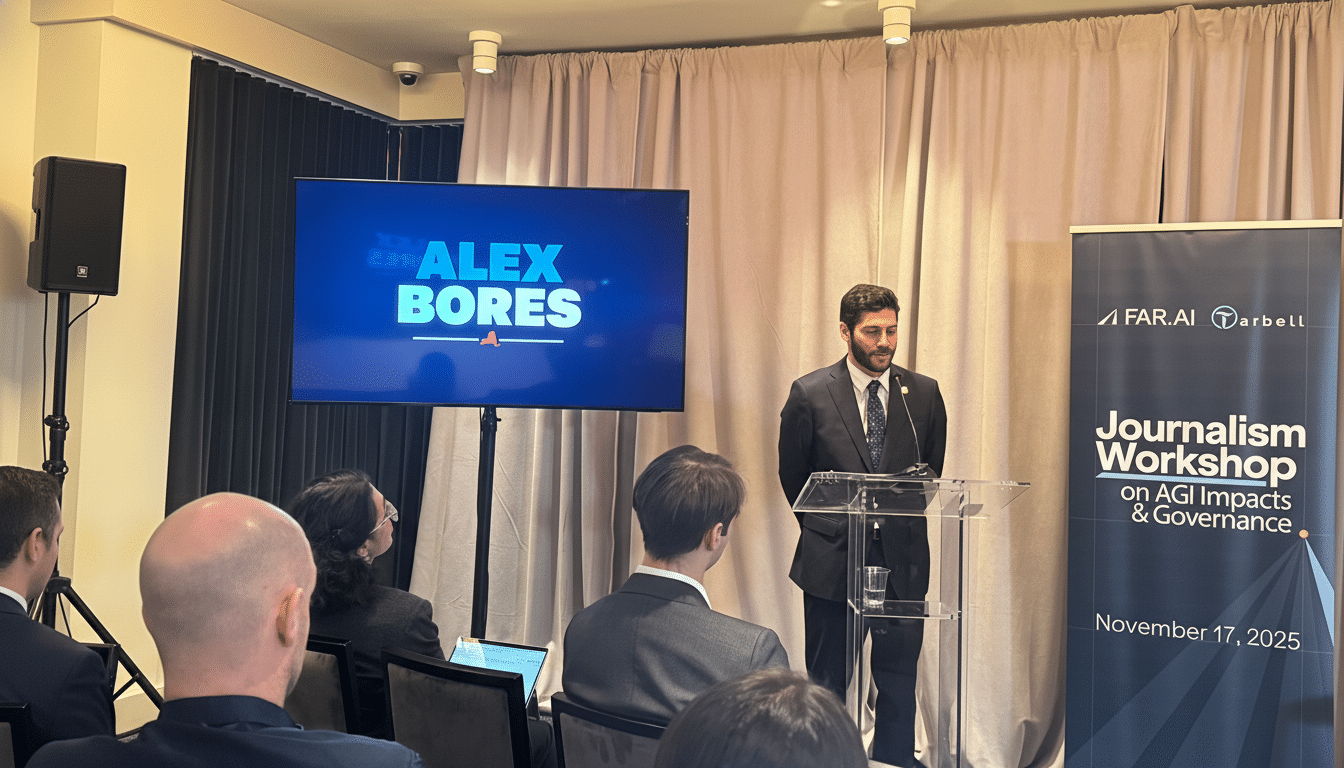A new pro-AI super PAC supported by Andreessen Horowitz is targeting New York State Assembly member Alex Bores, the lead sponsor of a closely watched state AI safety measure and a congressional candidate. Bores has not blinked and frames the offensive as a referendum on whether Silicon Valley gets to determine the rules of artificial intelligence, or if elected officials do.
The group, called Leading the Future, has indicated it will spend big against Bores over his support for the Responsible Artificial Intelligence for Safety and Ethics Act, or RAISE Act. Bores’ answer is manful: let the music go to hell. He says that as voters grow nervous about unregulated AI, they want clearly defined guardrails and not innovation-crushing ones.

Who Is Paying for the Fight Over New York’s AI Rules
Leading the Future started out with a reported nine-figure commitment to support candidates who are champions of light-touch regulation and to fight bills that would be onerous for the development of AI. The PAC lists endorsements from tech heavyweights in addition to Musk, such as OpenAI president Greg Brockman, Palantir co-founder and 8VC managing partner Joe Lonsdale and AI search company Perplexity. The operatives Zac Moffatt and Josh Vlasto are among those helping to drive the strategy, with public signs of a multibillion-dollar effort to influence key races.
Their pitch is straightforward: piecemeal state-by-state AI legislation makes for a patchwork that could slow American progress and give an edge to foreign competitors. They want one national template. That’s a message that resonates in some parts of the industry, where state laws are more uncertain, and it tees up a high-stakes clash with lawmakers who believe states are crucial testing ground for new policies when Congress can’t act.
Inside New York’s RAISE Act and What It Would Require
Bores’ bipartisan bill would mandate that large AI developers and other contractors have safety plans designed to prevent critical harms, follow them in practice, and report material safety incidents as they occur, such as model theft or catastrophic misuse. It also prohibits releasing systems that present a significant catastrophic risk of serious injury and establishes civil penalties of up to $30 million for violations.
When writing the legislation, Bores had spoken with OpenAI and Anthropic, as well as other labs. One compromise: doing away with third-party audit mandates after industry lobbying. Its supporters say the current version strikes an equitable balance, with clear duties but without freezing research. Critics deride it as vague, cautioning that subjective “critical harm” thresholds could create a fertile ground for lawsuits or discourage open-source work.
The stakes are national. If New York works out the enforcement and it’s practicable, you’ll see other jurisdictions copying what they do. Bores has already reached out to policymakers in several states to harmonize definitions and reporting thresholds, a direct response to the “patchwork” critique. Bills should also be careful not to run counter to the EU AI Act, to minimize cross-border compliance friction, he adds.
The Preemption Push to Block State-Level AI Regulations
Industry allies have pressed for federal preemption to inhibit state AI laws — an idea that emerged early in budget talks, only to be cut, but now is resurfacing on Capitol Hill. The tech industry’s argument: Only Washington can bring uniformity. But with no sweeping federal AI law in place, states are driving the bus again — much as with data privacy and gig work.

Bores’ camp sees the contest as a vintage American federalism referendum. If Congress enacts a strong, enforceable AI law, states can recede. Until then, they say, the states should serve as laboratories of policy. The National Institute of Standards and Technology already provides such a set of guidelines with its AI Risk Management Framework, which is voluntary but lacks the enforcement teeth that state bills can add.
What Voters Are Hearing About AI Risks and Local Impacts
Bores cites more tangible constituent concerns: local energy demand spikes due to AI data centers, model misuse and deepfakes in schools, and job disruption. The OECD has estimated that about 27% of jobs in advanced economies are highly at risk from AI-driven automation, which is why workforce transition plans are turning into a kitchen-table issue.
There are also energy and climate factors to take into account. Some analysts caution that near-universal AI adoption could lead to significant increases in data center electricity use in the coming years. Local officials are worried about rate impacts and grid congestion if siting and efficiency standards don’t keep pace with the buildout. Those fears provide political oxygen to proposals that could marry innovation incentives with safety, transparency and infrastructure planning.
Why This Race Matters for AI Policy and Industry Influence
Colorado has already passed a law on AI accountability in high-risk systems and discrimination. If New York then goes next with a “safety-and-disclosure” model, companies will have a de facto national floor to work under, without any action by the federal government. That’s precisely the result the pro-industry coalition is working to prevent — and why one House race can turn into a proxy fight about how rules will be written for the AI era.
For Bores, going up against a well-funded PAC is a feature of his campaign, not a bug. Building trust — in the form of safety plans, incident reporting and clear lines of responsibility — is pro-innovation because dependable systems win adoption, advocates Ramírez. Expect Leading the Future to push back that only uniform federal rules can keep America competitive while protecting users.
Whichever story wins, the impact will send ripples outside of one district. It will also say whether AI’s policy horizon is sketched in statehouses, on K Street or at the ballot box — and whether voters view guardrails as growth killers or the basis for another generation of American standing atop the global AI wave.

